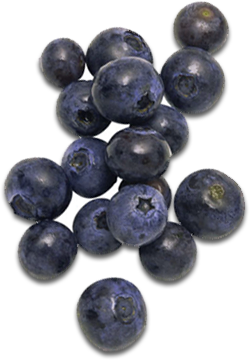no items to display
Babies at Risk: New Study Shows Women of Childbearing Age Only Eat Half the Recommend Amount of Vegetables
Another study has shown what we’ve heard many times. We are just not eating enough vegetables. In the latest revelation, it’s women of childbearing age who aren’t eating right and getting proper nutrition. The study, presented last month at the 2015 Experimental Biology conference, showed that on average, women aged 19 to 50 eat only about half the amount of vegetables recommended by the 2010 Dietary Guidelines for Americans.[1]
Dr. Maureen Storey, co-author of the paper, said, “A nutritious diet and healthy diet are crucial before, during, and after pregnancy to optimize the health for both mother and child.” The study shows that “intake of key nutrients from vegetables…by women of childbearing age in general and by non-Hispanic black women in particular, are well below adequate levels for the nutrition they need.”
Using data from the National Health and Nutrition Examination Survey (NHANES), researchers found the average woman of childbearing age consumed 1.36 cups of vegetables per day.
Non-Hispanic black women had the lowest intake of vegetables, at just 1.11 cups a day. Recommended intake ranges from 2.5 to 3 cups, depending on activity level. This demographic group also falls short on several key nutrients, including potassium, dietary fiber, calcium, and vitamin D.
The low potassium intake is particularly troubling, because these women are already at greater risk for high blood pressure and stroke, and potassium supports cardiovascular health. Fiber increases regularity — a common concern among pregnant women — and supports heart health. Vitamin D works together with calcium to support bone health.
If you’re a woman of childbearing age, you can include a variety of vegetables into your diet to increase your intake of most of these nutrients, thus improving nutrition. For example:
· You can get 16% of the daily value (DV) for potassium from a one-cup serving of pumpkin, 12% from carrots, and 8% from broccoli.
· Carrots and beets both provide 14% of the DV for fiber.
· Dairy is not the only source of calcium! A one-cup serving of collard greens provides 36% of the DV for this mineral, while turnip greens deliver 25% and kale provides 18%.
· Most vegetables are not good sources of vitamin D, but white button mushrooms do have some (3% DV).
Eating vegetables is one of the healthiest things you can do for improving nutrition for yourself (and if you’re pregnant or planning to become so, for your child). The vitamins, minerals, antioxidants, fiber, and phytonutrients found in vegetables help you think better, look better, and feel better.
Taking Juice Plus+ is also a smart investment in your health, because it’s been shown to increase levels of key nutrients. And there’s no more important time to make sure you’re getting all the nutrients you need than during pregnancy!
If you’ve ever been pregnant, did you try to increase your vegetable consumption? Any tricks you’d like to share?
References:
[1] New data show that women of childbearing age need more vegetables, white potatoes on the plate. March 30, 2015. Alliance for Potato Research and Education. http://www.apre.org/newsroom/press-releases/new-data-show-that-women-of-childbearing-age-need-more-vegetables-white-potatoes-on-the-plate/






